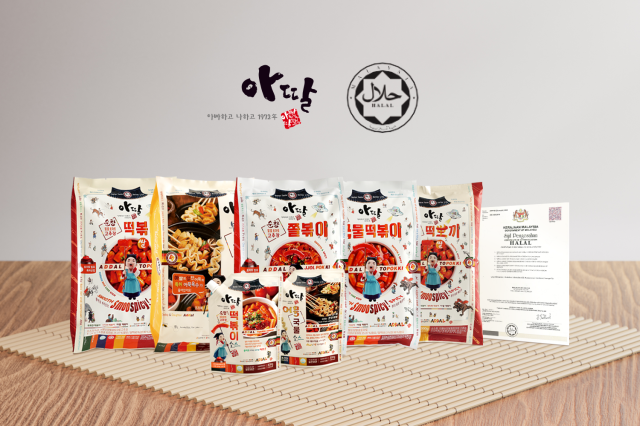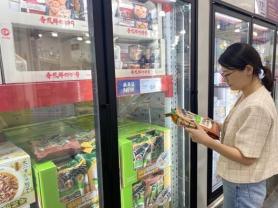
Malaysia's Jabatan Kemajuan Islam Malaysia (JAKIM) is regarded as one of the most credible halal certification agencies along with Indonesia's Majelis Ulama Indonesia (MUI), and the Majlis Ugama Islam Singapura (MUIS) in Singapore.
In a 2020 survey of about 10,000 people, conducted by Seoul City, Tteokbokki was picked as the most popular comfort food among South Koreans. The rice cake dish is typically available at local snack bars and food stalls on the side of the streets. Tteokbokki is commonly enjoyed by students after school and by adults paired with Soju, Korea's iconic distilled liquor, after work.
Addal said that the company received halal certification from JAKIM for its three Tteokbokki products -- rice-based, wheat-based, and a variant with black bean sauce called "Jjajang." Jjajang is a stew-like sauce made using fermented and caramelized soybean paste. The company also obtained JAMIL's authorization for seven other foods including Tangsuyuk, a Korean-style sweet and sour pork dish, and noodles smothered in Jjajang sauce.
All halal-certified Addal products are home meal replacement (HMR) products, designed to be swiftly consumed by simply using a microwave oven. The South Korean company aims to establish a halal development center in Malaysia and make a foray into other Islamic nations such as Singapore and Indonesia.
"The halal market is gaining momentum as the demand for Korean food is increasing in Southeast Asia thanks to the Korean cultural wave," Addal CEO Lee Hyun-kyeong said in a statement on November 23.
South Korea's instant noodles, known as Ramyeon, have also garnered popularity among Southeast Asian consumers. Samyang Foods, the first South Korean Ramyeon maker that received MUI's halal certificate in 2017, created an online phenomenon with its "Hot Chicken Flavor Ramen," an extremely spicy Ramyeon brand known as fire noodles. Many Southeast Asian consumers uploaded challenge videos of themselves eating hot noodles on YouTube.
Copyright ⓒ Aju Press All rights reserved.




